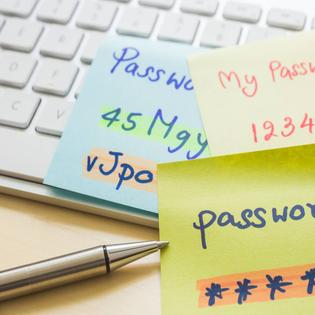Advertiser Disclosure
All About Cookies is an independent, advertising-supported website. Some of the offers that appear on this site are from third-party advertisers from which All About Cookies receives compensation. This compensation may impact how and where products appear on this site (including, for example, the order in which they appear).
All About Cookies does not include all financial or credit offers that might be available to consumers nor do we include all companies or all available products. Information is accurate as of the publishing date and has not been provided or endorsed by the advertiser.
Editorial Policy
The All About Cookies editorial team strives to provide accurate, in-depth information and reviews to help you, our reader, make online privacy decisions with confidence. Here's what you can expect from us:
- All About Cookies makes money when you click the links on our site to some of the products and offers that we mention. These partnerships do not influence our opinions or recommendations. Read more about how we make money.
- Partners are not able to review or request changes to our content except for compliance reasons.
- We aim to make sure everything on our site is up-to-date and accurate as of the publishing date, but we cannot guarantee we haven't missed something. It's your responsibility to double-check all information before making any decision. If you spot something that looks wrong, please let us know.
Whether you’re paying a friend back or buying something at a farmers market, you’ve probably heard the phrase, “Just Venmo me.” Venmo is a convenient payment app that allows you to send money quickly. Similar to PayPal or Zelle, Venmo has grown in popularity and become a daily staple for over 70 million users.
Whether you’re sending money to a friend or getting payment for something you sold through an online marketplace, you want to ensure your information and money are protected. While Venmo has many security measures in place, it is also important that you know how to spot a Venmo scam and keep yourself safe.
Let’s look at some common Venmo scams and how to avoid them, as well as how to use identity theft protection services to protect yourself against future cyber crimes.
Common Venmo scams
What to do if you’ve been scammed on Venmo
Tips to stay safe on Venmo
FAQ
Bottom line
Is Venmo safe?
In general, Venmo is a reliable and safe platform to use. But you should understand the risks of using the Venmo cash app so you can spot common scams and avoid any issues while using the app.
Venmo uses encryption and other safety features to keep your personally identifiable information secure, but there are still risks to using the platform.
Scammers are the biggest security threat for Venmo users. While Venmo protects you as much as possible, the online payment platform cannot refund money after it has been sent to the receiver.
Venmo continually adds features and updates its mobile app to keep you safe. Some of the security features of Venmo are dependent on how you set up your account, including a pin or multi-factor authentication to log in.
To have the safest experience on Venmo, you should make sure you use security features to keep your account secure. You should also understand common ways to stay safe online and protect your sensitive information on social media. And, as the Venmo user agreement says, you should only use it to send or receive money from people you know and trust.
Per its user agreement, Venmo does review account activity, including transactions, at "various times." The reviews check for suspicious or illegal activity.
Common Venmo scams
There are many different types of scams that can affect Venmo users. It is important when using Venmo, or any other online service, that users watch for suspicious activity that could be the signs of a scam.
In many of these scams, the scammers will make up an elaborate reason that they need you to pay them in a specific way in hopes that you’ll be empathetic to their situation. Here are some scams to watch out for:
Sending fake payments
One common scam is when scammers send proof of payment for a payment that didn't actually happen. You may receive an email that looks to be from Venmo confirming that a user sent you money and that the funds will be held until the shipment is confirmed. With this scam, after you send the item, you won’t receive the payment as the scammer said.
If you receive an email from Venmo about a payment, check first to see if the email address that sent the email is an official Venmo address. You can also check your Venmo app to see if the funds appear in your account.
If this happens to you, block the sender and report the issue to Venmo right away.
Sending fake links
You may also receive a fake link as part of a phishing or smishing campaign. With these, scammers send you a text message or email with a link. The message will look like it's from Venmo and have a call to action, like authorizing a deposit or confirming your account. Scammers hope you’ll click on the link unsuspectingly and allow them to add malware onto your device.
To avoid this scam, do not click on a link that seems suspicious. Venmo will not text you to confirm information, so avoid all text message links. If you get an email from Venmo, make sure that the link is going to a Venmo URL.
Best identity theft protection to shield you from scams
If you think you've been a victim of a scam or just want to take precautions, identity theft protection services can help. The best ID theft protection is a mix of proactive features like bank account, dark web, and credit monitoring, as well as protections like identity theft insurance and identity recovery services. Here are the three services we recommend most:
| Service |  Norton LifeLock |  Aura |
 Identity Guard |
| Individual monthly price | Starts at $7.50/mo for first yr | Starts at $12.00/mo | Starts at $6.67/mo |
| Family monthly price | Starts at $14.99/mo for first yr | Starts at $24.00/mo | Starts at $10.00/mo |
| ID theft insurance | Up to $3 million | Up to $5 million | Up to $1 million |
| Credit monitoring | |||
| 3-bureau credit reports | |||
| Details | Get LifeLock Read Our LifeLock Review |
Get Aura Read Our Aura Review |
Get Identity Guard Read Our Identity Guard Review |
Offering to send a check
Say you post something for sale online and an interested buyer contacts you. The only problem — they don’t have any money in their Venmo account, and they’ve asked if they can send you a check instead. Sometimes, they may also send you additional funds and ask that you deposit the extra into their Venmo account. Once you finish the transaction, the check bounces, and you’re left without the money or the items you sent them.
There’s no need to use a check when you’re using Venmo. Avoid this scam by refusing to take a check and only accepting funds through Venmo or cash.
Fake listings
Websites like Facebook Marketplace have grown in popularity, and scammers use these sites to post fake items for sale. These are often items that are in high demand, such as concert tickets or hard-to-find electronics.
The scammers may make up reasons they don’t have additional photos or details about the item. Once interested, they’ll convince you to pay upfront or deposit to reserve the item for you. Once you’ve paid, the scammer and the listing disappear entirely.
If the seller is requesting prepayment, you should research the seller to make sure they’re reputable. Also, double-check that the listing seems valid. If the price or quality seems too good to be true, a prepayment or deposit requirement is likely a scam. If the seller seems pushy or displays any suspicious behavior, you should also avoid sending money in advance.
Posing as a friend
You may receive a Venmo request from someone posing as one of your friends. In a scam like this, they may ask for money to be sent quickly because they’re at a store and forgot their wallet. Scammers use urgency to hope you’ll send it before looking into it.
Scammers may have access to your friend or family’s account when they send this request. To avoid this scam, you can check with the friend who is requesting the money and make sure they are actually requesting it.
If the scammers are using a different account that appears to be one of your friends, you can verify the last 4 digits of the account’s phone number before you complete the payment. This can help avoid sending money to the wrong or suspicious account as well.
Fake prize or cash reward
Be wary of any text messages or emails from Venmo or other online payment websites. You may receive an email or text saying that you’ve received a reward or prize for being a Venmo customer.
The communication will include a link to a look-alike Venmo website where the scammers can capture your login information. From here, the scammers are able to steal your identity and use your account information to gain greater access to your bank account and your friends and family.
Hacked accounts
While many of these scams come from suspicious accounts, there is a chance that someone you know may have a compromised Venmo account, and the scammers could use that account to prey on friends and family. Be cautious anytime you receive a Venmo request that you were not expecting.
If it seems suspicious, reach out to the sender to verify before sending any funds. Make sure you reach out to them via text, phone, or in-person in case the scammer has access to other accounts.
What to do if you’ve been scammed on Venmo
If you think you’ve been scammed on Venmo, you should report the suspicious activity to Venmo support immediately. Venmo has a couple of ways to report this activity.
- For a phishing scam, forward the email to phishing@venmo.com.
- For text messages or smishing, send screenshots to support@venmo.com.
- For fraudulent telephone calls, send a screenshot of the phone number to support@venmo.com.
While reporting the activity to Venmo, you should also protect your account and information. Here are a few things you should do after being scammed:
- Change your password.
- Contact your bank and inform them of what happened.
- Review any Venmo activity.
- Report any suspicious activity to Venmo. You can report suspicious activity through email (support@venmo.com), the company’s contact form, or its online chat.
- If the scam involves a business, you should report it to the Better Business Bureau (BBB) and Federal Trade Commission (FTC).
To help mitigate further risk, you can use a password manager to help you organize all of your passwords and to help you create unique passwords for every account. It may also help to use a credit card instead of a debit card since most credit cards offer payment protection.
Unfortunately, since Venmo immediately sends money to the receiver, it’s unable to recover funds after they’ve been sent. The only way to get your money back is if the receiver agrees to refund the money, which is unlikely to happen in a scam.
6 signs it's a Venmo scam
It is important to look for suspicious activity when using Venmo to keep your information and money safe. There are several signs to look for when using Venmo and other websites to avoid being scammed. Even if something doesn't include these signs, but seems suspicious, be careful with the amount of information you provide.
Here are some common signs that it may be a scam:
- Generic greeting: If you receive an email that only has a generic greeting instead of greeting you by name or your Venmo account name, it may be a scam.
- Grammatical errors: Look for typos, odd formatting, and grammatical errors as signs of a scam.
- Suspicious links: If you receive an email or text with a link that looks suspicious or out of character, do not click on it. If there is a hyperlink, and you’re on a desktop, you can hover over it to see the link's direct URL prior to clicking on it. If you’re on mobile, play it safe and don’t tap the hyperlink.
- Unknown attachments: Do not download any unknown attachments you receive from Venmo — or anywhere else.
- Sense of urgency: In many of these scams, fraudsters hope that a sense of urgency will keep you from looking into the transaction.
- Too good to be true: Does the listing, price, or product seem too good to be true? You may think you’re getting a great deal, but if it seems suspicious, it’s probably a scam.
There are many more signs that something could be a scam, but looking for these main points will help keep you safer online.
FAQ
Can I get my money back after a Venmo scam?
No, you cannot get your money back after a Venmo scam unless the scammer returns the funds to you. Venmo cannot reverse payments at the sender’s request. You can contact Venmo to report the fraud if you are a scam victim.
How do I report scams on Venmo?
To report a scam on Venmo, you’ll need to contact Venmo directly through the website’s contact form, online chat, or by email to support@venmo.com.
Can I cancel a Venmo payment?
Unfortunately, once you’ve sent a Venmo payment, you cannot cancel it. The funds are immediately available to the receiver. The only way to get payment returned is if the receiver is willing to refund the money. You can contact Venmo if the receiver does not repay the necessary amount.
Bottom line
Online payment services like Venmo offer consumers a great deal of convenience today. However, immediate payment also provides greater chances of being scammed and losing money.
To best combat Venmo scams, you should be cautious when participating in any transactions with people you do not know. It's also possible that a friend or family member’s account is hacked, so be cautious when receiving any unexpected requests. And don't forget to be on the lookout for common signs of phishing scams.
If you are the victim of a scam, make sure you immediately change your password and contact Venmo to report the suspicious activity. It's also a good idea to sign up for an identity theft protection service to keep tabs on your accounts and take action if necessary.
-
Excellent identity theft protection service
-
Includes a password manager and VPN
-
Robust tools for children’s security
-
Provides VantageScore and not FICO score updates





